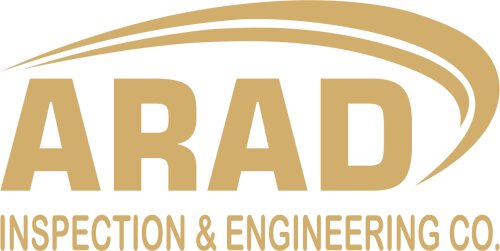Best Renewable & Alternative Energy Lawyers in Iran
Share your needs with us, get contacted by law firms.
Free. Takes 2 min.
Or refine your search by selecting a city:
List of the best lawyers in Iran
About Renewable & Alternative Energy Law in Iran
Iran is rich in fossil fuels, but the growth of renewable and alternative energy has become an important priority for environmental, economic, and energy security reasons. Over the past decade, the Iranian government has introduced policies to encourage investments in solar, wind, hydropower, biomass, and geothermal projects. These developments require careful navigation of Iran’s legal landscape, which includes government incentives, licensing procedures, and evolving regulations designed to foster cleaner energy supplies. Understanding the legal framework is essential for businesses, investors, developers, and even local communities engaged in renewable and alternative energy projects.
Why You May Need a Lawyer
Legal support is crucial when venturing into the renewable and alternative energy sector in Iran. A lawyer can provide vital assistance in several situations, including:
- Securing government permits and licenses required for development and operation of renewable energy facilities
- Negotiating and drafting Power Purchase Agreements (PPA) or construction contracts
- Understanding government incentives, subsidies, or financing mechanisms
- Addressing land acquisition, ownership disputes, or zoning regulations
- Complying with environmental impact assessment requirements
- Protecting intellectual property and technology rights
- Navigating cross-border investment rules or international partnerships
- Resolving disputes with contractors, partners, or regulatory agencies
- Ensuring compliance with evolving national and local laws
Professional legal guidance helps avoid costly mistakes, maximize benefits, and ensure compliance at every step of a renewable energy project.
Local Laws Overview
Several key laws and regulations shape the renewable and alternative energy sector in Iran:
- The Iranian Parliament’s supportive legislation for non-state renewable energy plants (enacted in recent years) provides the legal basis for private investment in renewable energy.
- The Renewable Energy and Energy Efficiency Organization (SATBA) is the main regulator, overseeing permits, incentives, and monitoring.
- Government-approved Feed-in Tariffs (FiT) guarantee rates for electricity generated from renewable sources to encourage investment.
- Project approval involves land use permissions, environmental assessments, and compliance with urban or rural development plans.
- There are opportunities for foreign investors, but certain restrictions, especially for land ownership, may apply.
- Local content and technology transfer requirements may exist for significant projects.
- Environmental laws require that renewable projects meet national and occasionally international environmental standards.
The laws can be complex, and changes are frequent as Iran adjusts its energy and environmental policies.
Frequently Asked Questions
What renewable energy sources are being developed in Iran?
Iran is developing solar, wind, biomass, small-scale hydropower, and geothermal energy projects, with solar and wind being the most rapidly growing sectors.
Can foreign companies invest in renewable energy projects in Iran?
Yes, foreign companies can invest under specific rules and must partner with local entities. Licensing and approvals from relevant authorities such as SATBA are essential.
What are Feed-in Tariffs (FiTs) and how do they work in Iran?
FiTs are fixed payments per kilowatt-hour paid to producers of renewable energy. In Iran, the government sets these rates to encourage investment and guarantee returns for a set period, typically 20 years.
Who regulates the renewable and alternative energy sector?
The Renewable Energy and Energy Efficiency Organization (SATBA) is the main governmental regulator for renewable energy projects and incentives in Iran.
Are there tax or financial incentives for renewable energy projects?
Yes, various incentives may include tax breaks, customs exemptions for importing required equipment, and low-interest financing, depending on project size and location.
What permits are required to build a renewable energy facility?
Permits are needed from SATBA; environmental licenses are required; and depending on project scale, approvals from urban, rural, and electricity authorities may also be necessary.
What is an Environmental Impact Assessment (EIA), and is it mandatory?
An EIA evaluates a project’s potential environmental effects. It is a mandatory requirement for most large-scale renewable energy projects in Iran.
How are land rights handled for renewable projects?
Land use must comply with national land and urban planning laws. Long-term leases are common, and foreign investors usually cannot own land outright but can participate through joint ventures.
Are there rules for connecting projects to the national grid?
Yes, grid connection is regulated and requires applications, technical assessments, and compliance with national electricity transmission rules.
Is legal support necessary for small-scale rooftop solar or residential projects?
While requirements are less complex, legal advice can help homeowners understand contracts, tariffs, and application procedures to avoid potential disputes or administrative delays.
Additional Resources
If you need information or support, you may find these governmental bodies and organizations helpful:
- Renewable Energy and Energy Efficiency Organization (SATBA) - regulator for renewable energy projects and incentives
- Ministry of Energy of Iran - policy making and energy planning
- Iranian Department of Environment - environmental regulations and permits
- Iran Renewable Energy Association - industry updates and advocacy
- Local chambers of commerce or economic development organizations
Connecting with these organizations can provide general guidance, updates on laws, and sometimes mediation for disputes.
Next Steps
If you are seeking to start, invest in, or resolve a dispute regarding a renewable or alternative energy project in Iran, consider the following steps:
- Define your project scope, goals, and find local partners if needed
- Research relevant laws and regulations related to your project type and region
- Consult with a lawyer experienced in Iranian renewable energy law to review your plans and documentation
- Prepare necessary applications, contracts, and permits with legal guidance
- Stay informed about regulatory updates and seek ongoing legal advice as needed
Taking these next steps with legal assistance increases your chances of project approval, reduces risk, and helps you take full advantage of Iran’s incentives for renewable and alternative energy development.
Lawzana helps you find the best lawyers and law firms in Iran through a curated and pre-screened list of qualified legal professionals. Our platform offers rankings and detailed profiles of attorneys and law firms, allowing you to compare based on practice areas, including Renewable & Alternative Energy, experience, and client feedback.
Each profile includes a description of the firm's areas of practice, client reviews, team members and partners, year of establishment, spoken languages, office locations, contact information, social media presence, and any published articles or resources. Most firms on our platform speak English and are experienced in both local and international legal matters.
Get a quote from top-rated law firms in Iran — quickly, securely, and without unnecessary hassle.
Disclaimer:
The information provided on this page is for general informational purposes only and does not constitute legal advice. While we strive to ensure the accuracy and relevance of the content, legal information may change over time, and interpretations of the law can vary. You should always consult with a qualified legal professional for advice specific to your situation.
We disclaim all liability for actions taken or not taken based on the content of this page. If you believe any information is incorrect or outdated, please contact us, and we will review and update it where appropriate.
Browse renewable & alternative energy law firms by city in Iran
Refine your search by selecting a city.















